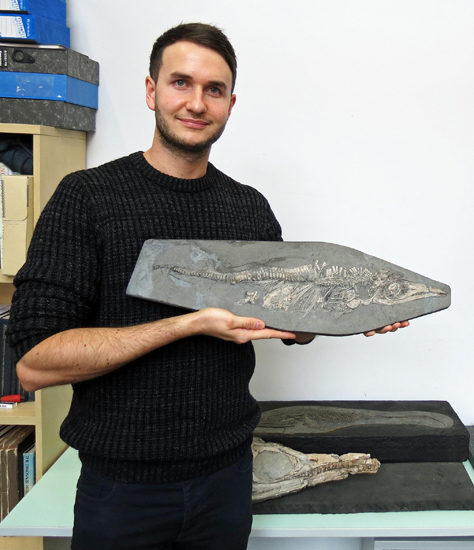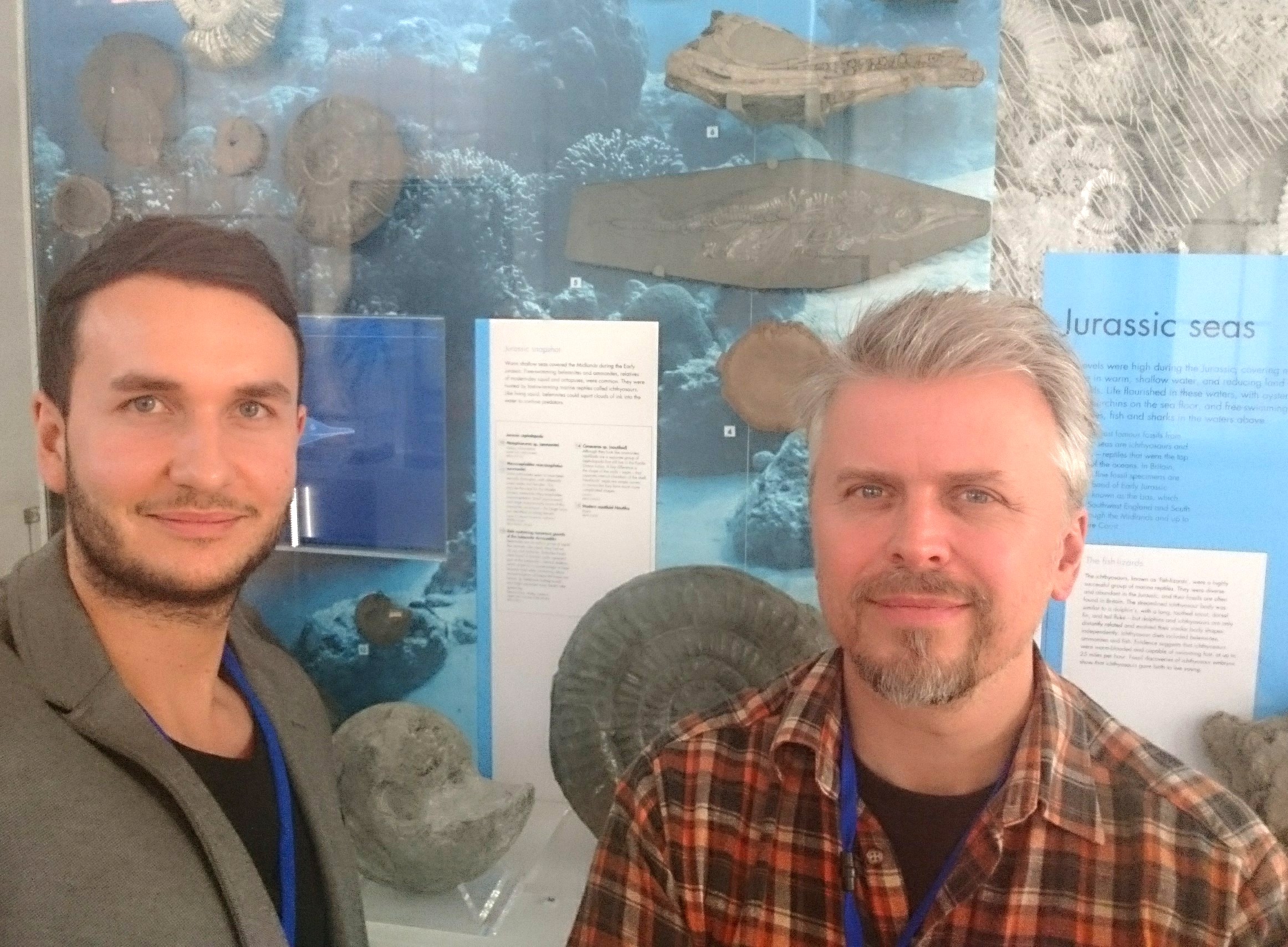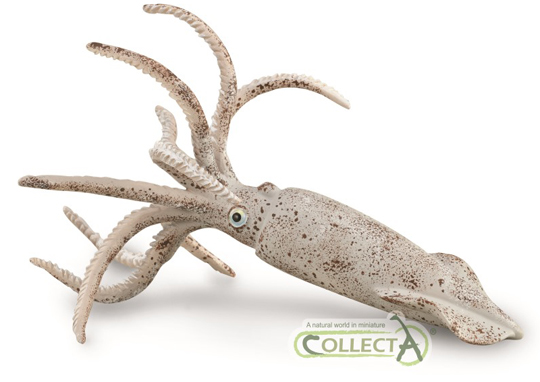Fossil of New-born Ichthyosaurus Reveals Last Meal
The fossilised remains of a baby Ichthyosaurus have revealed the last meal of this early Jurassic marine reptile. A group of UK-based researchers, including palaeontologists from the University of Manchester have identified the youngest fossil specimen of a species of Ichthyosaurus named Ichthyosaurus communis. The new-born, had dined on squid before meeting its demise. The scientists can’t be sure why the seventy-centimetre-long ichthyosaur died, but it’s short life (and death), have been preserved in the fossil record and its skeleton is helping palaeontologists to learn a little more about the habits of these beautifully adapted sea creatures.
Palaeontologist Dean Lomax Holds the Ichthyosaurus communis Marine Reptile Fossil
Picture credit: Manchester University/The University of Birmingham
The Last Meal of an Animal that Lived 200 Million Years Ago
Preserved in that part of the fossil where the animal’s stomach would have been, the scientists found lots of tiny “hook-like” structures. These hard, bony hooks come from the arms of squid and this suggests that this baby Ichthyosaurus had caught a squid and eaten it, shortly before it died. Palaeontologists know that some young marine reptiles liked to catch and eat fish, but this baby “Fish Lizard” dined on squid before meeting its own untimely demise.
An Illustration of the Baby Ichthyosaurus Attacking a Squid
Picture credit: Julian Kiely
A spokesperson for Everything Dinosaur commented:
“Finding out about what extinct animals ate by studying things found where their stomachs would have been is very exciting for scientists. They can use this information to help build up a picture about food webs that existed millions of years ago.”
The baby Ichthyosaurus fossil is part of the University of Birmingham fossil collection and it is on display at the Lapworth Geology Museum.
A Replica of a Belemnite (CollectA Belemnite Figure)
To view the CollectA Age of Dinosaurs model range: CollectA Prehistoric Life Models and Figures.
Visit Everything Dinosaur: Everything Dinosaur.




